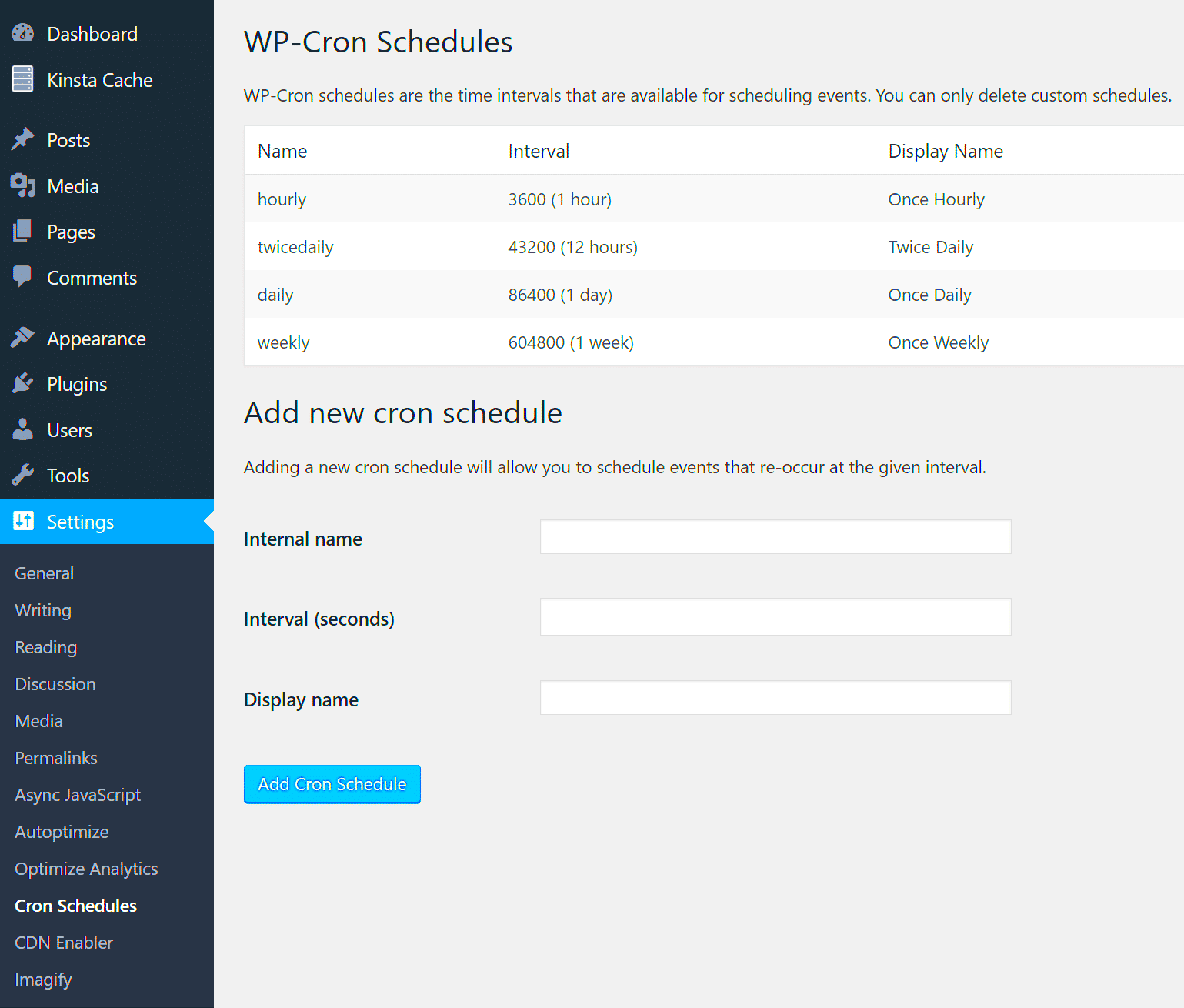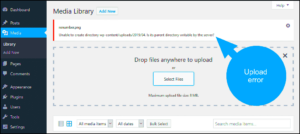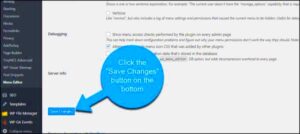Managing a WordPress site efficiently often requires scheduling tasks, and this is where WordPress Cron Jobs come into play.
What Are Cron Jobs in WordPress?
Cron Jobs in WordPress are scheduled tasks that automatically run at specified intervals, without the need for a user to trigger them. These tasks can include anything from checking for updates to sending email notifications or cleaning up the database. The term “Cron” comes from the Unix-based command scheduler, and in WordPress, it’s a similar process that automates background functions.
Some examples of WordPress Cron Jobs include:
- Publishing scheduled posts: When you schedule a post, WordPress uses a Cron Job to publish it at the set time.
- Checking for plugin and theme updates: WordPress Cron Jobs check for updates and notify you when they’re available.
- Database maintenance: Tasks like clearing post revisions or transients are handled through Cron Jobs.
In essence, WordPress Cron Jobs keep your site running smoothly by automating routine tasks that would otherwise take up your time.
How WordPress Cron Jobs Work
WordPress Cron Jobs don’t work in the same way as traditional server-side Cron Jobs. Instead of running on a fixed server schedule, WordPress Cron Jobs are triggered by website visitors. Whenever someone visits your site,
Here’s a simple breakdown of how they work:
- Visit Trigger: Every time someone visits your site, WordPress checks for tasks scheduled to run.
- Task Execution: If the scheduled time for a task has passed, WordPress will execute it automatically.
- Task Completion: Once the task is completed, WordPress will wait for the next visitor to trigger future Cron Jobs.
While this method works fine for most sites, it can cause delays if there is low traffic or if a task requires immediate attention. In these cases, you may need to set up a real server Cron Job for more reliable execution.
Why Should You Manage Cron Jobs in WordPress?
Managing Cron Jobs in WordPress is essential for the smooth operation of your website. By properly managing these scheduled tasks, you can ensure that important processes run without delay and avoid potential issues that can arise from misconfigured or unmonitored tasks. For example, tasks like updating plugins, checking for security patches, or sending email newsletters should happen regularly to maintain your site’s performance and security.
Here are a few reasons why Cron Job management is crucial:
- Improved Site Performance: Automating tasks ensures that time-consuming processes run in the background without impacting the user experience.
- Security: Cron Jobs can help run security scans, ensure your site is updated, and remove outdated data to prevent vulnerabilities.
- Efficiency: Managing tasks like backups or post-scheduling ensures your website stays operational without manual intervention.
- Reliability: Well-maintained Cron Jobs help reduce errors and prevent issues related to missed tasks.
By taking control of your Cron Jobs, you also gain better insights into how your website functions and can fine-tune tasks to ensure everything runs efficiently and on time. This means fewer technical hiccups and a better experience for your site visitors.
Common Use Cases for WordPress Cron Jobs
WordPress Cron Jobs are used for a wide variety of tasks that help your website function smoothly. Whether you’re running an e-commerce site, a blog, or a membership platform, Cron Jobs can automate several background processes that you would otherwise have to do manually. Here are some of the most common use cases:
- Post Scheduling: WordPress allows you to schedule blog posts and pages. Cron Jobs handle the task of publishing them at the specified time, ensuring your content goes live exactly when you want.
- Plugin & Theme Updates: Cron Jobs regularly check for updates for your installed plugins and themes, so you don’t have to manually update each one.
- Backup Scheduling: Many WordPress backup plugins use Cron Jobs to automate the backup process, making sure your site data is regularly backed up.
- Database Cleanup: WordPress Cron Jobs can be used to remove unnecessary post revisions, spam comments, and other data that clutter the database.
- Security Scans: Cron Jobs can run regular security checks and scans to protect your site from potential threats.
These are just a few examples, but in reality, you can automate nearly any task that can be scheduled. By managing these Cron Jobs, you can ensure that everything happens automatically and on time, without requiring constant attention.
How to Manage Cron Jobs in WordPress
Managing Cron Jobs in WordPress can be done in several ways, depending on your site’s needs and your level of technical expertise. Here are a few common methods to manage Cron Jobs effectively:
- Using Plugins: The easiest way to manage Cron Jobs is by using a plugin like WP Crontrol or Advanced Cron Manager. These plugins provide a user-friendly interface to view, manage, and delete scheduled tasks. You can also create custom Cron Jobs directly from the plugin interface.
- Editing the wp-config.php File: If you want more control over Cron Jobs, you can disable WordPress’s default Cron system and set up server-side Cron Jobs. This can be done by editing the wp-config.php file and adding the following line of code:
define('DISABLE_WP_CRON', true);
This disables WordPress’s internal Cron system and allows you to set up an actual Cron Job on your server to handle scheduled tasks.
Whether you’re managing Cron Jobs via a plugin or server-side, the key to effective management is staying on top of the tasks and ensuring that they run as scheduled. Regular checks and adjustments help avoid problems and keep your site running smoothly.
Tools and Plugins for Managing WordPress Cron Jobs
Managing Cron Jobs manually can be a bit tricky, especially if you’re not familiar with server-side scripting or coding. Thankfully, WordPress offers a variety of tools and plugins to make managing Cron Jobs easier. These plugins provide an intuitive interface to view, schedule, and edit your Cron Jobs without having to dig into your website’s backend code.
Here are some popular plugins and tools that can help you manage Cron Jobs in WordPress:
- WP Crontrol: This is one of the most popular plugins for managing Cron Jobs. It allows you to view all scheduled tasks, modify them, and even add new tasks. WP Crontrol also helps you disable or delete any unwanted tasks.
- Advanced Cron Manager: Another great plugin for managing Cron Jobs, Advanced Cron Manager gives you a user-friendly dashboard where you can manage, schedule, or delete Cron Jobs. It also allows you to execute tasks manually if needed.
- WP Scheduled Posts: For users who want more control over post scheduling, this plugin lets you manage post publishing times more efficiently. It also integrates Cron Jobs to automate post scheduling.
- Server-Side Cron Management Tools: If you have a high-traffic website or need precise control, you may prefer using server-side tools such as cPanel or Plesk. These tools allow you to create Cron Jobs directly on your server and set more specific intervals for their execution.
Using these tools and plugins simplifies the process of managing Cron Jobs in WordPress. They offer easy-to-use interfaces that make scheduling and monitoring tasks straightforward, even for beginners.
Frequently Asked Questions
When it comes to WordPress Cron Jobs, there are a few common questions that often come up. Here are the answers to some of the most frequently asked questions:
- What happens if I don’t manage Cron Jobs?
Without proper Cron Job management, tasks may not run on time or could be skipped entirely. This can lead to missed updates, incomplete backups, or unprocessed scheduled posts, which can affect your site’s performance and user experience. - Can I disable WordPress Cron?
Yes, you can disable WordPress’s default Cron system by addingdefine('DISABLE_WP_CRON', true);to your wp-config.php file. This allows you to set up a more reliable server-side Cron Job to manage tasks. - How can I test if my Cron Jobs are working?
You can test if Cron Jobs are running correctly by checking the log files in your Cron management plugin or through your server’s control panel. You can also manually trigger a Cron Job to see if it works as expected. - Can I create custom Cron Jobs?
Yes, you can create custom Cron Jobs using plugins like WP Crontrol or Advanced Cron Manager. You can also add custom code to your theme’s functions.php file to schedule tasks. - Are there any risks to using Cron Jobs?
While Cron Jobs are generally safe, improper management can cause performance issues, such as tasks running too frequently or conflicting with other scheduled tasks. Regular monitoring helps minimize these risks.
Conclusion
Managing Cron Jobs in WordPress is an essential part of keeping your website running smoothly. By automating routine tasks like post scheduling, plugin updates, and database cleanup, you can ensure your site remains secure, efficient, and up-to-date. With the help of plugins like WP Crontrol and Advanced Cron Manager, managing these tasks becomes much easier, even for beginners.
If you have a high-traffic site, you may want to consider using server-side Cron Jobs for more control and reliability. Either way, staying on top of your Cron Jobs will help you avoid missed tasks and keep your website performing at its best.
Remember, regular checks and adjustments are key. As your site grows, your Cron Job management needs may evolve, so it’s important to review your setup periodically. With the right tools, WordPress Cron Jobs can become an invaluable part of your site’s maintenance routine.



